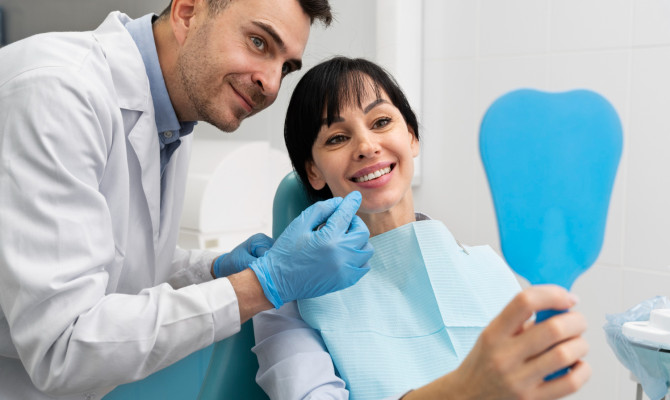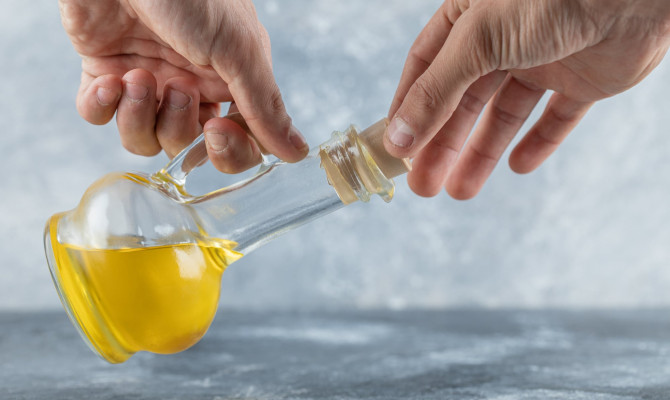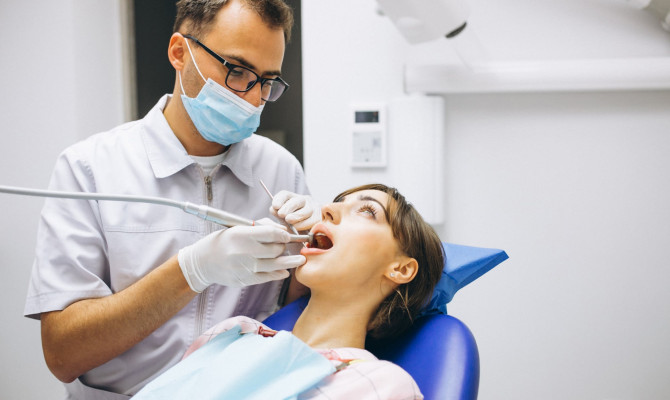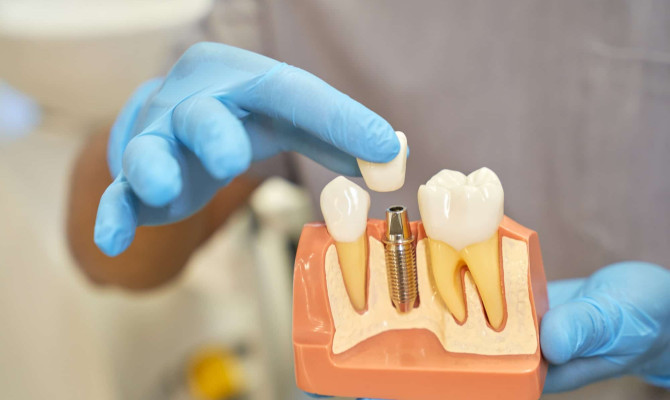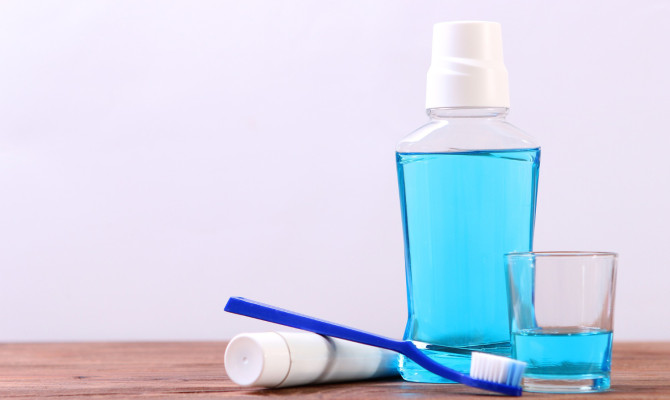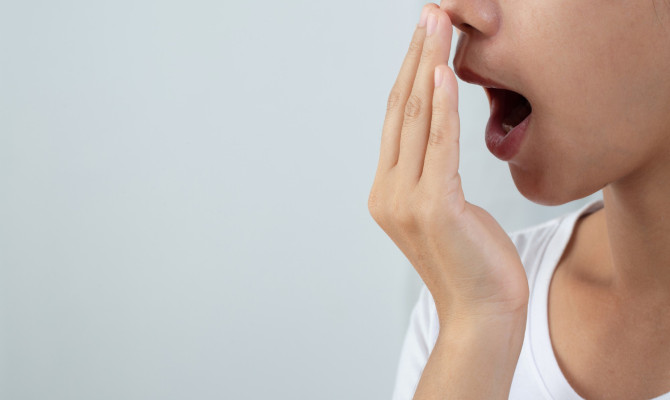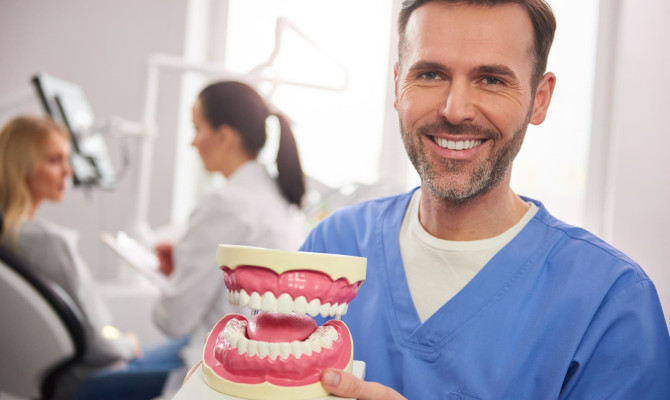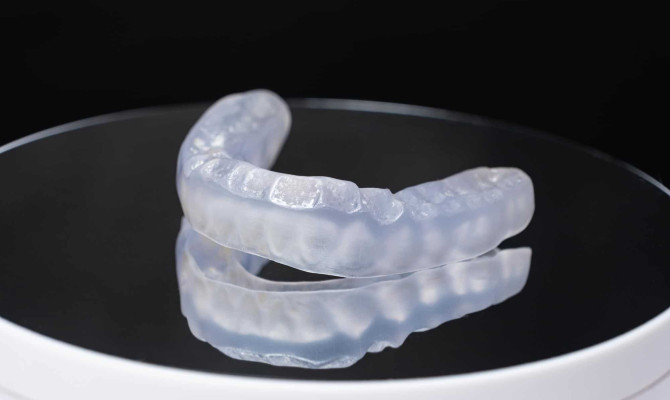Mouthwash: What do I need to know?

- Mouthwash
- 05 Sep 2023
Overview
What is mouthwash?
A liquid solution used to rinse the mouth and refresh the breath is mouthwash, sometimes called mouth rinse. It has been used for centuries to maintain the health of teeth and prevent dental problems.
In this post, we will examine the various varieties of mouthwash, their functions, and their advantages and disadvantages. We will also provide guidance on how to choose the best mouthwash and apply it correctly1Overview| Researched based study from Nlm.nih.gov
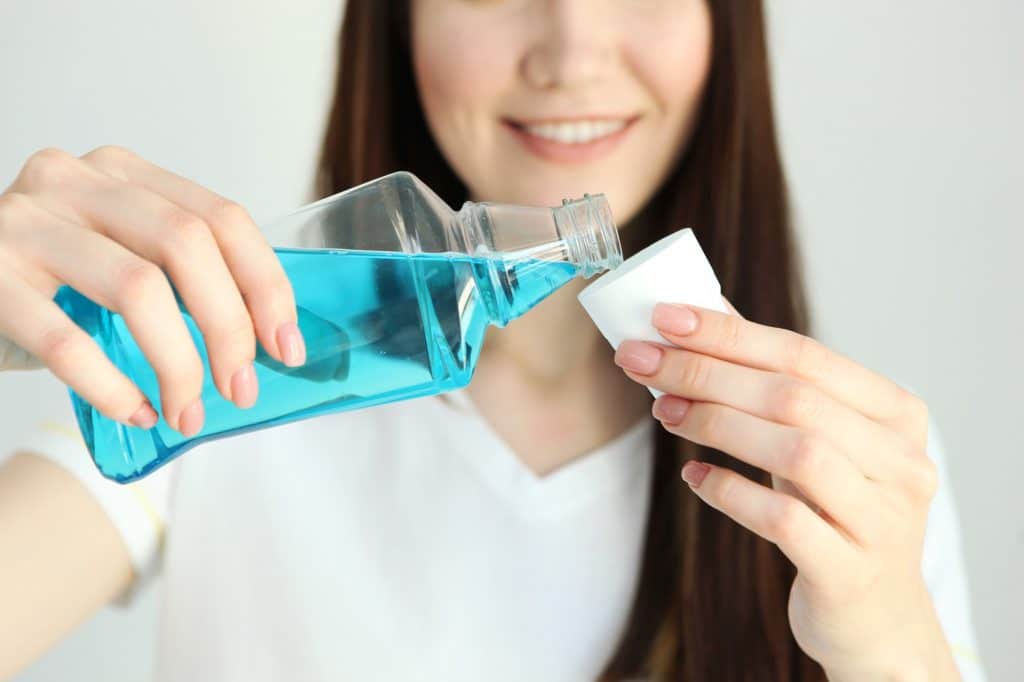
key facts
- Mouthwash has been used since prehistoric times. It is said that the ancient Greeks and Romans utilized it. These were frequently created using organic ingredients like vinegar, herbs, and spices.
- The usage grew over time, particularly in Europe and the Middle East. Products with antiseptic components like alcohol and phenol were launched in the 19th century.
- Advertising made it more widely accessible and well-known in the 20th century. To address problems with oral health, new formulations were created.1Overview| Researched based study from Nlm.nih.gov
Types
What are the various types of mouthwash?
There are three basic categories, including:
Cosmetic mouthwash
- Typically, they are used to improve oral taste and freshen breath.
- They frequently contain substances like flavorings, sweeteners, and essential oils and are alcohol-based.
- Although they can temporarily reduce foul breath, they do not have any appreciable long-term advantages for dental health.2Types| Researched based study from Ada.org
Therapeutic mouthwash
- They are designed to help in the prevention or treatment of oral health problems such cavities, gum disease, and plaque buildup.
- They commonly have active components like fluoride, antimicrobials, or astringents that eliminate germs, strengthen tooth enamel, or lessen gum irritation.
- Depending on the formulation, they can either be over-the-counter or prescription-strength.
Mouthwash with fluoride
- They are designed to strengthen tooth enamel and guard against cavities.
- They include fluoride, which aids in re-mineralizing tooth enamel and boosting its resistance to decay.
- They are made to promote the elimination of surface stains, which whitens teeth. Ingredients like hydrogen peroxide or carbamide peroxide could be present.4Types| Researched based study from Cdc.gov
Antimicrobial
- They aim to eliminate oral microorganisms and reduce plaque accumulation.
- They include active substances like chlorhexidine or essential oils like thyme or tea tree oil.2Types| Researched based study from Ada.org
Anti-gingivitis mouthwash
- They have been developed for the treatment or prevention of gum disease. They include active substances like peppermint and eucalyptus oil or chlorhexidine.
Desensitizing mouthwash
- They work by inhibiting the channels that carry pain impulses to help lessen tooth sensitivity. They frequently include sodium fluoride or potassium nitrate.
Natural mouthwash
- They don’t include any alcohol or chemical additives and are composed completely of natural ingredients. Herbal extracts, essential oils, and baking soda are a few examples.
- They can offer advantages for dental hygiene and a suitable alternative for individuals who like natural products, even if they are not as effective as therapeutic ones for avoiding or treating oral health problems.2Types| Researched based study from Ada.org
Benefits
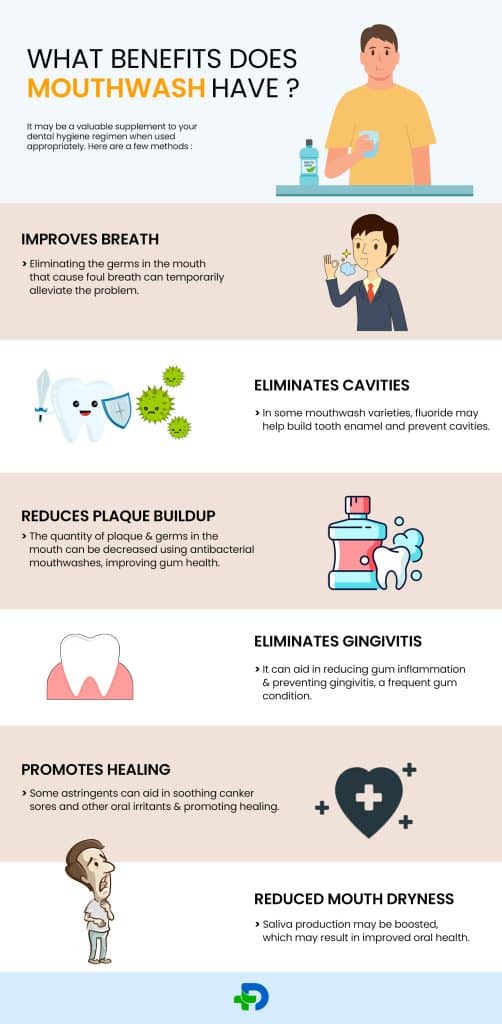
What benefits does mouthwash have?
It may be a valuable supplement to your dental hygiene regimen when used appropriately. Here are a few methods:
Improves breath
- Eliminating the germs in the mouth that cause foul breath can temporarily alleviate the problem.
Eliminates cavities
- In some mouthwash varieties, fluoride may help build tooth enamel and prevent cavities.
Reduces plaque buildup
- The quantity of plaque and germs in the mouth can be decreased using antibacterial mouthwashes, improving gum health.
Eliminates gingivitis
- It can aid in reducing gum inflammation and preventing gingivitis, a frequent gum condition.
Promotes healing
- Some astringents can aid in soothing canker sores and other oral irritants and promoting healing.
Reduced mouth dryness
- Saliva production may be boosted, which may result in improved oral health.1Benefits| Researched based study from Nlm.nih.gov
Mode of action
How do they work?
- The type of mouthwash being used will determine how it works. However, they generally function by removing oral germs, lowering plaque accumulation, and promoting breath freshening.
- They have active components like essential oils and chlorhexidine that destroy oral bacteria. These elements break down the bacterial cell walls during rinsing, killing the germs.
- Fluoride-containing mouthwashes strengthen tooth enamel and raise it against decay. It is taken up by the teeth, which aids in re-mineralizing the enamel and mending any damage that may have occurred.
- Denseness-reducing mouthwashes obstruct the pathways via which pain signals are sent from the tooth to the nerve. This may lessen the sensitivity and pain of the teeth.3Mode of action| Researched based study from Adha.org
Side effects
Potential risks and side effects
- Mouthwashes with alcohol may irritate certain people since they might give them a burning or stinging feeling in the mouth.
- They may also dry out the mouth, which may result in halitosis and other problems with dental health.
- Some people could be allergic to fluoride or particular chemicals like essential oils.
- Stop using the mouthwash immediately and get medical help if you exhibit any adverse reaction symptoms, such as swelling, redness, or trouble breathing.8Side effects| Researched based study from Nlm.nih.gov
Selection
How do I select the right mouthwash?
Factors to consider when choosing a right mouthwash
Oral health needs
- By considering those needs, choose a mouthwash designed to suit your unique oral health demands. For instance, a mouthwash that fights gingivitis can be helpful if you have gum disease. A desensitizing one can be a wise choice if you’re sensitive.
Active components
- Find a mouthwash with active elements that can effectively meet your demands. For instance, search for a mouthwash with an antibacterial ingredient like chlorhexidine to reduce plaque accumulation.6Selection| Researched based study from Nlm.nih.gov
Alcohol intake
- If you have a history of dry mouth or alcohol sensitivity, pay attention to the mouthwash’s alcohol concentration. There are solutions without alcohol, and they could be preferable for some people.
Flavor
- Choose a flavor that appeals to you and will make using it enjoyable. Numerous them are offered in a selection of flavors, such as mint, cinnamon, or citrus.
Cost
- Look for an established brand with a solid efficacy and safety track record. Choose a mouthwash that works within your budget after considering the price.7Selection| Researched based study from Pharmaceuticaljournal.com
Usage
How to use mouthwash effectively?
Following are the steps to correctly use mouthwash:
- Pour the advised quantity into a cup or your mouth. For further directions on how much to use, read the label.
- Spend at least 30 seconds swishing the mouthwash about your mouth, making sure to get it on your teeth, gums, cheeks, and tongue.
- In the sink, spit the mouthwash out. Do not ingest it.
- To get rid of any residual solution, rinse with water.
- It’s crucial to adhere to the label’s usage directions for details.
Regular brushing and flossing are the best methods for removing plaque, guarding against cavities, and preventing gum disease. To get the optimum benefits, utilizing it consistently over time is crucial. However, excessive usage might be dangerous since it upsets the average bacterial balance in the mouth.1Usage| Researched based study from Nlm.nih.gov
Alternatives
Alternatives of mouthwash
Although mouthwash can be a useful tool for enhancing oral hygiene, there are also several alternatives that may be used.
Oil pulling
- It’s an age-old practice that involves swishing oil, such as coconut oil, about in the mouth for a while before spitting it out. This procedure is claimed to help reduce oral microorganisms and enhance dental health.5Alternatives| Researched based study from Nlm.nih.gov
Rinse with salt water.
- After dental operations, a saltwater rinse helps ease painful gums and encourage healing. Mix one teaspoon of salt with one or two glasses of warm water, then gargle for a minute before spitting it out.
Rinse with hydrogen peroxide.
- It is a gentle antiseptic that can aid in bacterial eradication. Use 3% hydrogen peroxide diluted in water to rinse.
Baking soda
- It can establish a healthy Ph balance and neutralize oral acid. You may make a paste by combining a teaspoon of baking soda with water and using it to clean your teeth.
Chewing sugar-free gum
- Chewing sugar-free gum after meals can help stimulate salivation, wipe away food particles, and maintain a healthy level of dental acidity.
Bottom line
The bottom line
- In addition to your usual dental hygiene practice, mouthwash can be beneficial. It’s necessary to choose one that meets your needs and to use it as directed.
- You must follow these basic oral hygiene procedures to keep healthy teeth and gums.
- Overall, when used correctly and in combination with other hygiene practices, the usage of mouthwash can be beneficial. Getting advice from a dentist if you have any questions regarding usage or specific dental needs is recommended.
Any feedback on this article?
 This Articles content was accurate
This Articles content was accurate Very Informative Article
Very Informative Article I have a question or a comment
I have a question or a comment
 This article contains inaccurate content
This article contains inaccurate content This article was not helpful
This article was not helpful I have a question or a comment
I have a question or a comment
We appreciate your helpful feedback!
Checkout our social pages
References
-
National Library of Medicine
A Fresh Look at Mouthwashes—What Is Inside and What Is It For? | Overview | Benefits | Usage
-
American Dental Association
Mouthrinse (Mouthwash) | Types
-
Journal of Dental Hygiene
Safety and Efficacy of Antimicrobial Mouthrinses in Clinical Practice | Mode of action
-
Centers for Disease Control and Prevention
Other Fluoride Products | Types
-
National Library of Medicine
The effect of oil pulling with coconut oil to improve dental hygiene and oral health: A systematic review | Alternatives
-
National Library of Medicine
Recent Development of Active Ingredients in Mouthwashes and Toothpastes for Periodontal Diseases | Selection
-
The Pharmaceutical Journal
How to select the right mouthwash | Selection
-
National Library of Medicine
Adverse events associated with home use of mouthrinses: a systematic review | Side effects












